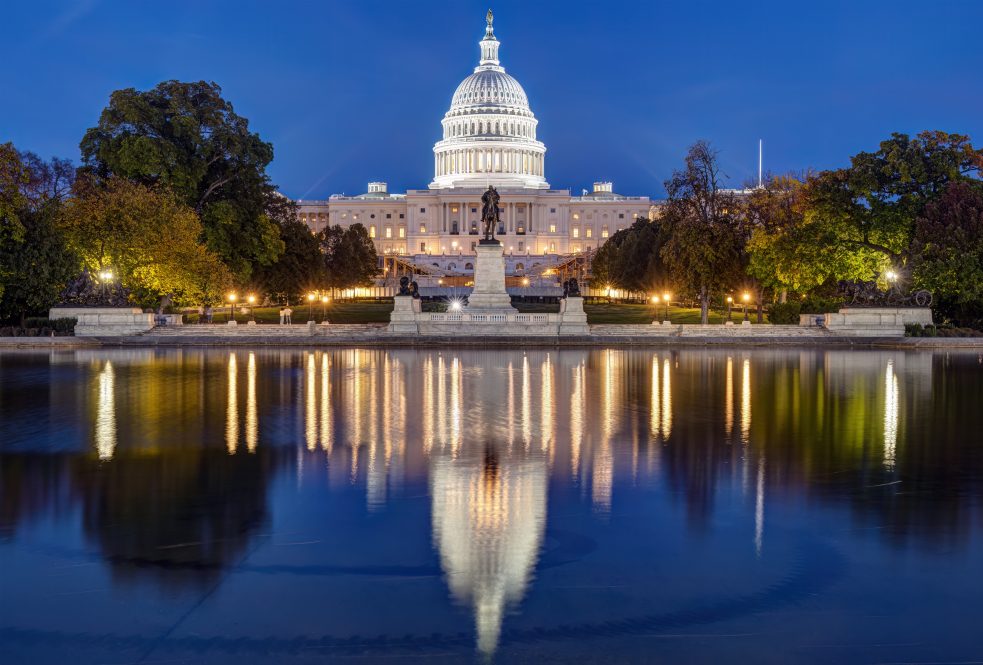Social workers and students should always make their voices heard, but particularly during this tumultuous period for federal rulemaking, says Kathryn Libal, UConn social work and human rights professor and director of the Gladstein Family Human Rights Institute.
“Those who want to engage in social work practice should really engage: in coalition, talking with legislators, working with folks to help draft bills, lobbying, and putting pressure on lawmakers at state and federal levels,” Libal says.
Analyzing how this works in practice, Libal co-authored the new paper “Federal Rulemaking: An Untapped Arena for Social Work Policy Education and Practice” in Families in Society: The Journal of Contemporary Social Services. She joined lead authors Emily Loveland and Madri Hall-Faul, both alum from the UConn School of Social Work’s doctoral program.

Here’s a quick primer.
When the federal government proposes a new rule, they can’t just implement it instantly, but generally open for a 60-day period for online public comment. The record may be a 2017 tech policy rule about net neutrality, which attracted around four million public comments.
Based on such feedback, a proposed rule can potentially be modified or even withdrawn entirely. Even if the rule goes into effect unaltered, courts have struck some down as unconstitutional, sometimes even citing public comment posts in their legal opinions.
The collaborative paper focuses on two specific examples affecting the social work field: one from Trump’s presidency, one from Biden’s.
One example focused on a 2019 Trump administration rule related to immigration, which would have had far-reaching effects on immigrants accessing public benefits. The administration proposed expanding the definition of “public charge” to include a person accepting government benefits like Medicaid or SNAP, formerly named food stamps. Federal laws can make “public charges” less likely to obtain green cards or more likely to be deported.
Libal and her team scanned through more than 64,000 comments, examining both the focus of the comments and looking for ones submitted by social workers. Her team quoted one emotional post in particular: a University of Maryland MSW student opposing the rule by writing about her client, a single mother of four.
While the Trump administration approved the rule, a federal court struck it down in 2020. The Biden administration withdrew the rule in 2021, and the Supreme Court dismissed the still-ongoing lawsuit as moot in 2022.
The other example addressed a potentially far-reaching modification of the TANF (Temporary Assistance to Needy Families) program. The authors highlighted that if implemented, the rule change “could have ensured that a crucial social welfare funding stream would reach its intended recipients” during a time of legislative inaction on social welfare policy.
However, the authors also noted that “social work did not have a robust presence in the 7,073 comments submitted.”
Loveland, Hall-Fall, and Libal end their paper by encouraging both social workers and social work students to submit more public comments about proposed rules. Keeping up to date on the regulatory arena is critical now more than ever: Health and Human Services Secretary Robert F. Kennedy Jr. recently proposed eliminating the public comment period for major federal health policies entirely.
In addition to engaging in the rule-making process at the federal level, the authors call upon social workers and social work students to write more letters to elected officials, testify in-person at committee hearings, and run for office themselves. (The National Association of Social Workers counts two former social workers in the current Congress: Democratic Reps. Sylvia Garcia of Texas and Hillary Scholten of Michigan.)
Libal’s two co-authors, Emily Loveland and Madri Hall-Faul, met Libal as UConn Ph.D. students, where Libal was the advisor for their doctoral degrees and supervised their dissertation research. Now assistant professors at California State San Bernardino and University of Kentucky, respectively, the three are collaborating on a textbook about ways in which social workers can be trained to be more involved in policymaking and implementation.
“I’m hoping to implement an assignment for a course I’m teaching in the fall,” Libal says, “in which students will review a current proposed rule and submit their own public comment during the 60-day period.” Hall-Faul and Loveland have already engaged their students in similar efforts.
Given how prominently executive actions and rule changes are figuring into national policymaking during recent administrations, knowing how to participate meaningfully in commenting on proposed rule changes is critical for the profession.



